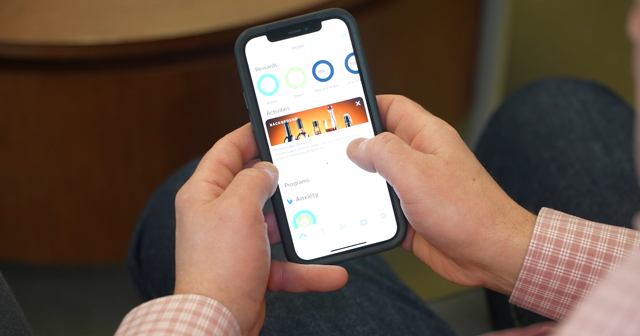
Mobile World Congress (MWC) Barcelona 2024 will break new ground at its upcoming event with the introduction of the Mobile Marketing Zone, a dedicated space for mobile marketing professionals.
Adjust, Airship and mParticle are partnering to bring you the Mobile Marketing Zone at MWC, which takes place 26-29 February 2024.
The zone promises to be a hub of expertise and hands-on support that will draw attendees eager for assistance in navigating the complexities of mobile marketing.
Apply for a free pass for the chance to attend Mobile World Congress Barcelona in February
Exploring the mobile marketing zone
The Mobile Marketing Zone promises a comprehensive destination for mobile marketers, offering insights and assistance across the entire spectrum of the customer app lifecycle.
From the crucial stages of discovery and acquisition to activation, engagement and loyalty, the Zone’s three partners bring their specific expertise in Customer Data, Data Attribution, and Mobile App Experience platforms.
Anticipating trends at MWC
Here we share perspectives of Zone partners on major trends shaping the mobile marketing landscape.
Airship — Navigating generative AI
Airship highlights a significant role for Generative AI (Gen AI) in scaling consumer interactions, implementing continuous experimentation and optimising experiences across the customer lifecycle.
Emphasising the importance of well-defined goals, Airship expects Gen AI, along with low- and no-code tools to help eliminate bottlenecks in content creation, empowering both technical and non-technical teams to test more.
Adjust — The rise of predictive analytics and AI
Adjust predicts a revolution in mobile marketing with the rise of predictive analytics, AI and contextual Connected TV (CTV) ads. According to the company, predictive analytics will offer insights into future campaign ROI, especially in cross-channel and privacy-centric scenarios.
Adjust also expects the CTV domain to expand towards shoppable content and interactive advertising, representing a major shift in the mobile marketing space.
mParticle— Focus on AI, privacy and data quality
mParticle considers the dominance of AI, data privacy, and the critical aspect of data quality in mobile marketing discussions.
As AI becomes more mainstream, the company underscores the need for marketers to discern between different types of AI and understand respective data governance and compliance implications.
It also emphasises the impact of Google’s Privacy Sandbox, and mobile marketers’ adaptability to a privacy-centric reality. Lastly, top of mind and key to sustainability and growth is Data quality.
Marketers know that to do anything useful with data – like modelling, targeting, or analytics – they must rely on high-quality data, as their output will ever only be as good as the quality of the inputs.
Shifting consumer behaviours and expectations
Airship — Balancing personalisation and privacy
According to Airship, consumers no longer tolerate being tracked across unrelated apps and websites, yet, this year, more will share all types of information with brands they love for the right value exchange. It’s time brands embrace data privacy as an essential part of the customer experience.
Some customers want ever-increasing personalisation, while others don’t want to share anything. Respecting these preferences and contextually, progressively and thoughtfully growing customer understanding, are keys to succeeding in this mobile-first era.
Adjust: Hyper-personalisation and transparency
Adjust said: Consumer expectations are shifting towards hyper-personalised experiences and frictionless user journeys – particularly in the onboarding and purchase stages. The move to more interactive ad formats, such as shoppable CTV ads, will set a precedent.
Users will come to expect contextually relevant ads and shorter paths to purchase.
There is also a rising consumer emphasis on transparency in exchange for loyalty. Turning to trusted influencers for recommendations and respected opinions, mobile marketers can lean into this consumer preference by implementing clear, transparent affiliate campaigns in the growing mcommerce landscape.”
mParticle: AI as an enabler of custom-tailored experiences
mParticle believes consumer expectations around the quality of interactions and experiences with brands continue to grow. The brands that offer more personalised, custom-tailored experiences will win, forcing marketers to place a greater emphasis on how better decisions are made, at scale.
This means that AI will be required, as precision at scale becomes even more important. As such, AI represents an opportunity to enhance (rather than replace) marketers in their jobs. mParticle thinks we’ll see a lot of the under-appreciated but very important operational work that many marketers do begin to be automated, allowing marketers to become more creative and more strategic.
Obstacles on the horizon
Airship — Apps give customers what they want and need
Airship points out that budget pressures risk compromising mobile tech stacks and eroding customer retention by prioritising acquisition for short-term revenue growth over long-term CX.
Keeping existing customers is cost-effective, and they are more likely to make repeat purchases, refer others and spend more. More brands are seeing mobile app investments pay off as customers cite “simplifies my life” and “saves me time” as the top reasons for ongoing use. In contrast, industry email open rates have plummeted over the last three years.
Airship postulates that customers expect more from brands for their attention. Email isn’t going away, but even within apps, native experiences perform exponentially better than HTML web views. Prioritising technology that shows customers they are valued can have a big impact on profitability.
Adjust — Sprawling user journeys and privacy changes demand new methods to ensure effectiveness
Adjust observes that user journeys have grown increasingly complex, now sprawling across multiple devices and advertising channels.
This, combined with changing privacy frameworks in the new post-ID dependency era, has impacted the use of traditional attribution and data analytics methods. Marketers must meticulously map these intricate user pathways, oftentimes without device-level data, and draw meaningful conclusions for optimisation across various touchpoints.
This necessitates a heightened focus on acquiring consistent, comparable data across platforms. The ability to integrate and interpret this data will be crucial, demanding advanced analytical tools and strategies that can seamlessly operate across the diverse digital landscape, ensuring a unified and effective marketing approach.
mParticle — Privacy and policy changes require resiliency
mParticle claims the biggest challenge for marketers will be to adapt to change around privacy and policy shifts from Apple and Google.
It said: “Death of cookies, restriction of identifiers, blockage of referring URLs, and masking of email addresses have led to signal loss and decreased addressability. Adaptability and resilience are the purest forms of data maturity within an organisation.
As the rules of engagement continue to change, marketers who have data practices that are most adaptable will win.”



